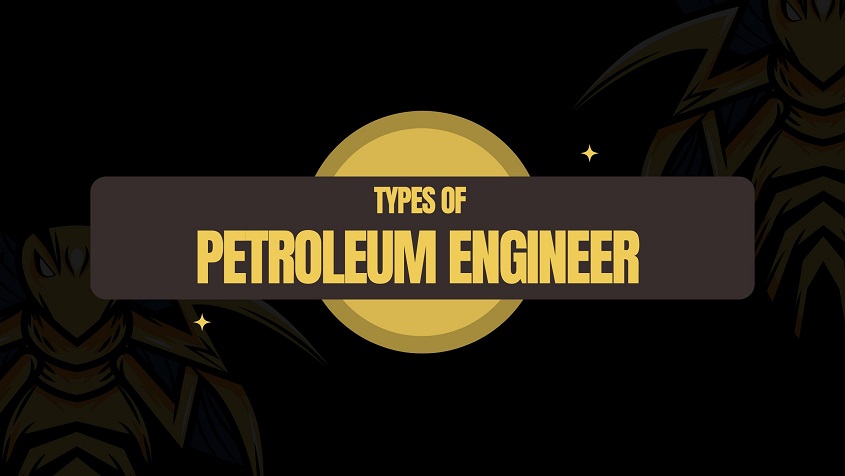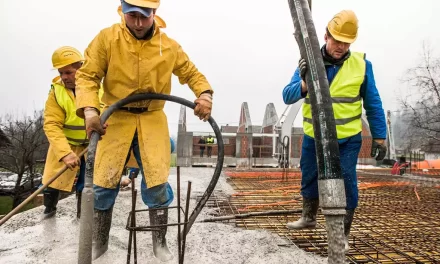Petroleum Engineer – Types, Salary, Work and More in 2024
Hello friends, today we will share detailed information about Petroleum Engineer.
Introduction of Petroleum Engineer
Petroleum engineering is a branch of engineering that deals with the exploration, production, and development of oil and gas resources.
Petroleum engineers are responsible for discovering, extracting, and producing crude oil and natural gas.
They work with geologists and other professionals to determine the most efficient and effective ways to extract oil and gas from the earth.
What is Petroleum Engineer
Petroleum engineers work in various fields, including drilling, reservoir engineering, production engineering, and completion engineering.
They use computer models and simulations to evaluate and design well drilling plans, production processes, and pipeline systems.
They also monitor the performance of wells and reservoirs and develop strategies for increasing production and reducing costs.

Some of the tasks that petroleum engineers perform include:
- Designing and implementing drilling programs to reach oil and gas reservoirs
- Analyzing geological data to determine the location and size of oil and gas reservoirs
- Developing plans for good completion, including the selection of casing, tubing, and other equipment
- Evaluating and recommending drilling equipment and technologies
- Designing and implementing production processes, including oil and gas treatment, separation, and transportation
- Developing strategies for improving oil and gas recovery rates
- Conducting cost analyses to determine the feasibility of new projects
- We are ensuring compliance with environmental regulations and safety standards.
A bachelor’s degree in petroleum engineering or a related field is typically required to become a petroleum engineer. Some employers may require a master’s degree as well.
Petroleum engineers must also have strong analytical and problem-solving skills and excellent communication and teamwork abilities.
Employment opportunities for petroleum engineers are found primarily in the oil and gas industry but also government agencies, consulting firms, and research organizations.
The demand for petroleum engineers fluctuates with the global oil and gas markets, and changes in oil prices and production levels may impact job opportunities.
Overall, petroleum engineering is a challenging and rewarding field that requires a combination of technical knowledge, creativity, and problem-solving skills to help meet the world’s energy needs.
Types of Petroleum Engineer
There are several types of Petroleum Engineers, each with its own area of expertise within the field of oil and gas exploration and production. Some of the most common types of Petroleum Engineers are:
Drilling Engineers: They design and manage drilling programs, including selecting equipment, wellbore design, and drilling fluid management. They are responsible for ensuring that the drilling operations are carried out safely, efficiently, and within budget.
Reservoir Engineers: They analyze and model the behavior of underground oil and gas reservoirs to optimize production rates and predict reservoir performance. They work closely with geologists to evaluate the characteristics of reservoir rocks and fluids and design strategies to extract oil and gas from the reservoirs.
Production Engineers: Production Engineers design and optimize the systems and processes that extract oil and gas from reservoirs. They work on well-completion and stimulation techniques, production equipment, and surface facilities to maximize production rates and reduce costs.
Completion Engineers: They design and implement the completion and production systems for wells, including the selection of casing, tubing, and downhole equipment. They work closely with drilling and production engineers to ensure the well is completed safely and efficiently.
Facilities Engineers: They design and manage the surface facilities used to process, transport, and store oil and gas. They work on designing and constructing pipelines, storage tanks, and processing plants to ensure safe and efficient operations.
Reservoir Simulation Engineers: They use computer models and simulations to predict the behavior of oil and gas reservoirs, optimize production, and evaluate the economic viability of oil and gas projects. They work closely with reservoir engineers and geologists to develop and refine simulation models.
These are some of the main types of Petroleum Engineers, and many professionals in the field may have expertise in more than one area.
Tips to Stay Healthy in Office
How to become a Petroleum Engineer in India?
To become a Petroleum Engineer in India, you typically need to follow these steps:
Earn a Bachelor’s degree: The first step to becoming a Petroleum Engineer in India is to earn a Bachelor’s degree in Petroleum Engineering or a related field, such as Chemical Engineering or Mechanical Engineering. Several universities in India offer undergraduate programs in Petroleum Engineering.
Gain Work Experience: Many employers prefer to hire Petroleum Engineers with work experience in the oil and gas industry. To gain this experience, you can look for internships, co-op programs, or entry-level positions in the industry.
Obtain Professional Certification: Professional certification can demonstrate your expertise and competency in Petroleum Engineering. The Society of Petroleum Engineers (SPE) offers certification programs for Petroleum Engineers, including the Certified Petroleum Engineer (CPE) and the Professional Engineer (PE) designation.
Pursue a Master’s Degree: Although not always required, obtaining a Master’s degree in Petroleum Engineering or a related field can increase your chances of employment in Petroleum Engineering. Many universities in India offer graduate programs in Petroleum Engineering.
Network and Stay Updated: Joining professional organizations, attending industry conferences, and staying up-to-date on the latest developments in the field can help you build your professional network and stay competitive in the job market.
In addition to these steps, it’s important to develop strong technical and problem-solving skills and good communication and teamwork abilities to succeed as a Petroleum Engineer in India.
What is the salary of a Petroleum Engineer in India?
The salary of a Petroleum Engineer in India can vary depending on several factors such as location, company, work experience, and level of education.
Generally, entry-level Petroleum Engineers in India can expect a salary ranging from INR 3 to 5 lakhs per year.
With more experience and expertise, the salary can range from INR 8 to 20 lakhs per year or even higher for senior positions. However, it is essential to note that salaries may vary significantly between companies and regions in India.
Additionally, fluctuations in the oil and gas industry can also affect the demand for Petroleum Engineers and their corresponding salaries.
Ways to Keep Your Brain Healthy
Petroleum Engineer specialist
There are several areas of specialization within the field of Petroleum Engineering. Some of the most common specialist roles include:
Drilling Specialist: Drilling Specialists are experienced engineers who focus on designing and executing drilling operations. They may specialize in directional drilling, drilling fluids, and drill bit technology.
Reservoir Management Specialist: Reservoir Management Specialists focus on maximizing the production of oil and gas reservoirs. They use computer models and simulation software to analyze the performance of pools and work to optimize well placement, production rates, and reservoir recovery.
Production Enhancement Specialist: Production Enhancement Specialists work to improve the efficiency and effectiveness of oil and gas production processes. They may specialize in areas such as hydraulic fracturing, acidizing, and other stimulation techniques.
Facility Design Specialist: Facility Design Specialists are responsible for designing the surface facilities that process, transport, and store oil and gas. They may specialize in pipeline design, storage tank design, and processing plant design.
HSE Specialist: Health, Safety, and Environment (HSE) Specialists are responsible for ensuring that oil and gas operations are carried out in a safe and environmentally responsible manner. They may specialize in risk management, safety engineering, and environmental compliance.
These are just a few examples of the many specialist roles within Petroleum Engineering. Depending on the company and the specific job requirements, there may also be many other areas of specialization.

FAQ
What do petroleum engineers do?
Petroleum Engineers are responsible for designing and developing methods for extracting oil and gas from underground reservoirs. Their work typically involves the following:
Reservoir analysis and modeling: Petroleum Engineers work with geologists to analyze and model underground oil and gas reservoirs. They use this information to determine the best methods for extracting oil and gas from the pools.
Well, design, and drilling: Petroleum Engineers design and plan the drilling of wells, including selecting drilling equipment, designing the wellbore, and managing drilling fluid systems. They also oversee the drilling process to ensure it is carried out safely and efficiently.
Well completion and production: After a well is drilled, Petroleum Engineers design and implement the systems and processes used to extract oil and gas from the reservoir. This may include designing completion systems, selecting production equipment, and managing production processes.
Facility design and operation: Petroleum Engineers design and manage the surface facilities that process, transport, and store oil and gas. This may include preparing pipelines, storage tanks, and processing plants, as well as managing the operation of these facilities.
Health, safety, and environmental (HSE) management: Petroleum Engineers are responsible for ensuring that oil and gas operations are carried out safely and in compliance with environmental regulations. They may design safety systems, manage risk, and meet environmental standards.
Petroleum Engineers are involved in all oil and gas resources exploration, production, and management. Their work requires technical knowledge, problem-solving skills, and creativity to develop effective and efficient methods for extracting and managing these valuable resources.
Is petroleum engineering at IIT?
Yes, several Indian Institutes of Technology (IITs) offer undergraduate and graduate programs in Petroleum Engineering. Some of the IITs that offer Petroleum Engineering programs include:
- Indian Institute of Technology (IIT) Bombay
- Indian Institute of Technology (IIT) Kharagpur
- Indian Institute of Technology (IIT) Madras
- Indian Institute of Technology (IIT) Roorkee
These programs typically cover topics such as reservoir engineering, drilling engineering, production engineering, and petroleum geology.
They provide students with a strong foundation in the technical and scientific principles of Petroleum Engineering, as well as hands-on experience through laboratory work, internships, and industry projects.
Graduates of these programs are well-equipped to pursue careers in the oil and gas industry and related fields such as renewable energy and environmental engineering.
Is petroleum engineering a promising career?
Petroleum Engineering can be a rewarding career for individuals interested in exploring, producing, and managing oil and gas resources. Here are some factors to consider when deciding if Petroleum Engineering is a promising career:
Job opportunities: The demand for Petroleum Engineers can fluctuate with the global oil and gas industry, but overall, there is a steady demand for qualified professionals in this field. With the increasing global demand for energy, there are opportunities to work in many different countries and regions.
High earning potential: Petroleum Engineering is one of the highest-paying engineering fields, with the potential for lucrative salaries and other benefits such as bonuses and stock options. However, it’s important to note that salaries can vary depending on several factors such as location, level of experience, and industry demand.
Challenging and dynamic work: Petroleum Engineering involves complex technical and scientific problem-solving and the opportunity to work on challenging and active projects. This can be intellectually stimulating and rewarding for individuals who enjoy problem-solving and innovation.
Opportunities for growth and advancement: Petroleum Engineers have opportunities for growth and advancement within the industry, including leadership positions and opportunities to work on high-profile projects.
However, it’s important to note that Petroleum Engineering is a field heavily tied to the oil and gas industry, which can be subject to fluctuations and changes due to market conditions, geopolitical factors, and environmental concerns.
Additionally, the industry is facing increasing pressure to transition toward renewable energy sources, which could impact job opportunities in the long term.
Therefore, it’s essential to carefully consider these factors when deciding if Petroleum Engineering is a good career path.
What is the highest salary of a petroleum engineer?
The salary of a Petroleum Engineer can vary depending on several factors such as location, level of experience, company size, and industry demand.
However, according to various sources, the highest salaries for Petroleum Engineers can range from USD 200,000 to USD 250,000 per year or more, depending on the level of experience and expertise.
This is typically for senior-level positions in the oil and gas industry, such as Chief Petroleum Engineer or Director of Engineering.
It’s important to note that salaries can also vary depending on the country and region where the engineer is working.
Is petroleum engineering tough?
Petroleum Engineering can be a challenging field of study and work, as it requires a combination of technical and scientific knowledge, problem-solving skills, and creativity to develop effective methods for extracting and managing oil and gas resources.
Here are some reasons why Petroleum Engineering can be considered burdensome:
Rigorous coursework: Petroleum Engineering coursework can be rigid, and students are required to study a range of subjects such as geology, thermodynamics, fluid mechanics, and drilling engineering. The coursework can be challenging, requiring a solid foundation in math and science.
Complex problem-solving: Petroleum Engineers are responsible for designing and developing methods for extracting oil and gas from underground reservoirs, which can involve complex technical and scientific problem-solving.
Engineers need to be able to analyze geological data and develop models to determine the best methods for extracting oil and gas from the reservoir.
Fieldwork: Petroleum Engineering often involves fieldwork, which can be physically demanding and require long hours of work. Engineers may need to work in remote locations or in harsh environmental conditions.
Industry pressure: The oil and gas industry is subject to fluctuations and changes due to market conditions, geopolitical factors, and environmental concerns.
This can create stress for Petroleum Engineers to develop new technologies and methods to extract oil and gas efficiently and sustainably.
Overall, Petroleum Engineering can be a challenging but rewarding field for individuals who are interested in the exploration, production, and management of oil and gas resources.
It requires a strong foundation in math and science and the ability to work well under pressure and develop innovative solutions to complex problems.
Is B.Tech petroleum engineering?
Yes, B.Tech in Petroleum Engineering is an undergraduate program that provides students with a strong foundation in the technical and scientific principles of petroleum engineering.
The program typically covers topics such as reservoir engineering, drilling engineering, production engineering, and petroleum geology.
Students also gain hands-on experience through laboratory work, internships, and industry projects.
The goal of the B.Tech program in Petroleum Engineering is to prepare graduates for careers in the oil and gas industry, as well as related fields such as renewable energy and environmental engineering.
Graduates can work in various roles such as reservoir engineers, drilling engineers, production engineers, and project managers.
They can also pursue further education, such as a master’s degree in petroleum engineering or related fields.
Overall, B.Tech in Petroleum Engineering is a good option for students interested in the exploration, production, and management of oil and gas resources and with a strong foundation in math and science.
Top 25 UK Towns & Cities for Work
What is a petroleum engineer’s salary in India?
The salary of a Petroleum Engineer in India can vary depending on several factors such as experience, location, industry demand, and company size.
According to various sources, the average salary for a Petroleum Engineer in India is around INR 6-10 lakhs per year (approximately USD 8,000 – USD 13,500).
However, this can vary depending on factors such as the level of experience, industry type, and work region.
For example, entry-level Petroleum Engineers can expect to earn around INR 3-5 lakhs per year, while experienced engineers with more than five years of experience can earn upwards of INR 20 lakhs per year or more.
Additionally, engineers working in the private sector or multinational companies may earn higher salaries compared to those working in government or public sector companies.
It’s important to note that these are average figures, and salaries can vary widely depending on factors such as industry demand, region of work, and level of expertise.
What can I do after the 12th for petroleum engineering?
To pursue a career in Petroleum Engineering after 12th, you need to complete a Bachelor’s degree in Petroleum Engineering. Here are the steps you can take to pursue Petroleum Engineering after the 12th:
Complete 12th standard with science stream: You need to have completed your 12th standard with a science stream, including Physics, Chemistry, and Mathematics as core subjects.
Take Petroleum Engineering Entrance Exams: You must appear for Petroleum Engineering entrance exams such as JEE Main, JEE Advanced, BITSAT, or other state-level engineering entrance exams.
Enroll in a Bachelor’s Degree Program: After qualifying for the entrance exams, you can enroll in a Bachelor’s degree program in Petroleum Engineering. The program typically takes four years to complete and includes coursework in drilling engineering, reservoir engineering, production engineering, and other related topics.
Internships and Training Programs: It’s good to gain practical experience by taking up internships or training programs with oil and gas companies. This will provide you with hands-on experience and help you develop the skills required.
Pursue Higher Education: After completing a Bachelor’s degree, you can also consider pursuing a Master’s degree in Petroleum Engineering or related fields. This will enhance your knowledge and skills and provide better career opportunities.
Pursuing Petroleum Engineering after 12th requires a strong foundation in science and mathematics and a passion for the oil and gas industry. You can build a successful career in this field by following these steps.
Highest Paying Jobs in America
Do petroleum engineers have a future?
Yes, Petroleum Engineers have a future, as the demand for energy and hydrocarbon resources is likely to continue in the foreseeable future.
Petroleum engineers play a vital role in exploring, producing, and managing oil and gas resources. They are responsible for developing new technologies and techniques to extract hydrocarbons more efficiently and cost-effectively.
Petroleum Engineers are also involved in renewable energy and environmental engineering, which are expected to grow in demand in the coming years.
The world’s dependence on fossil fuels is not going to disappear anytime soon, and the industry continues to evolve with the changing times.
Petroleum Engineers are involved in innovative projects, including shale gas and oil sands, deep-sea drilling, and carbon capture and storage.
Additionally, the growth of emerging markets, such as India and China, has created an increased demand for oil and gas resources.
Petroleum Engineering is continuously evolving, and new opportunities are emerging in many renewable energy and sustainable practices.
Therefore, Petroleum Engineering is still a promising career option with plenty of job opportunities in the future.
Do petroleum engineers make a lot of money?
Petroleum engineers, particularly those with experience and advanced qualifications, can make a lot of money. Salaries can vary depending on several factors, such as industry demand, location, experience, and company size.
According to various sources, the average salary for a Petroleum Engineer in the United States is around $137,720 annually. In countries like Canada, the average salary is around CAD 150,000 annually.
In countries like the UAE and Saudi Arabia, the average salary can be even higher due to the high demand for oil and gas resources in those regions.
However, it’s important to note that salaries can vary widely depending on factors such as industry demand, work region, and expertise level.
Entry-level Petroleum Engineers may earn a lower wage compared to experienced professionals. Additionally, those working in the private sector or multinational companies may earn higher salaries than those working in government or public sector companies.
Overall, Petroleum Engineering is a lucrative career with the potential for high salaries and good career growth opportunities.
Is JEE compulsory for petroleum engineering?
It depends on the university or institution offering the petroleum engineering program.
JEE (Joint Entrance Examination) is a common engineering entrance exam in India for nationwide admission to various engineering colleges. However, not all petroleum engineering programs require JEE scores for admission.
Some universities may have their entrance exams or admit students based on their performance in national-level exams like JEE Main, JEE Advanced, or other equivalent exams.
Some universities may also have a separate entrance exam for their petroleum engineering program, and JEE scores may not be considered.
Therefore, checking with the university or institution offering the petroleum engineering program is best to determine the admission requirements.
How many years can I study petroleum engineering?
Petroleum engineering programs can vary in length depending on the country and the specific educational system.
In the United States, for example, a typical Bachelor’s degree program in petroleum engineering can take four years to complete. A Master’s degree program can take an additional 1-2 years after completing a Bachelor’s degree.
Some universities also offer a combined Bachelor’s and Master’s degree program that can be completed in 5 years.
In other countries, such as India, a Bachelor’s degree in petroleum engineering can take four years to complete, while a Master’s degree program can take an additional two years.
It can take 4-6 years to complete a Bachelor’s and Master’s degree program in petroleum engineering, depending on the country and the specific educational system.
What is the salary after b.tech in petroleum engineering?
The salary after completing a Bachelor’s degree in petroleum engineering can vary widely depending on several factors such as the company, location, job responsibilities, and level of experience.
In India, the starting salary for a petroleum engineer with a B.Tech degree can range from INR 4-10 lakhs per annum. The salary can increase significantly with some experience and higher education, such as an M.Tech or Ph.D.
In the United States, the starting salary for a petroleum engineer with a Bachelor’s degree can range from $75,000 to $100,000 annually.
However, this can vary based on factors such as the location of the job, the size and type of the company, and the specific role of the engineer.
It’s worth noting that the petroleum industry can be volatile, and salaries can fluctuate based on the price of oil and other factors.
Can a girl study petroleum engineering?
Absolutely! Petroleum engineering is a field of study open to both males and females. Gender does not determine one’s ability to succeed in the area, and many successful female petroleum engineers worldwide exist.
It’s important to note that the petroleum industry has traditionally been male-dominated, but that is slowly changing.
Many companies and educational institutions actively promote diversity and inclusion in the industry, and more and more women are pursuing careers in petroleum engineering.
Gender stereotypes or societal expectations should not deter women from being interested in studying petroleum engineering. They should pursue their interests and passions and work hard to achieve their goals in this field.
Is there any scope in petroleum engineering?
The petroleum industry is crucial for the world’s energy needs, and it significantly impacts the global economy.
Petroleum engineers play a vital role in the exploration, extraction, and production of oil and gas resources. Petroleum engineering has a wide range of career opportunities, and there is scope in this field.
Petroleum engineering graduates can find job opportunities in oil and gas companies, consulting firms, government agencies, and research institutions.
Some job roles available to petroleum engineers include reservoir engineer, drilling engineer, production engineer, operations engineer, and project manager.
As the world’s energy demand continues to rise, there will be a need for qualified petroleum engineers to help find and produce new sources of oil and gas.
Additionally, the increasing focus on sustainable energy means that petroleum engineers are also involved in developing alternative energy sources like geothermal, bio-fuels, and hydrogen fuel cells.
It’s worth noting that the petroleum industry can be volatile and subject to fluctuations in oil and gas prices, which can impact job opportunities and salaries.
However, with the right skills and experience, petroleum engineering graduates can build rewarding and lucrative careers.
Which exam is required for petroleum engineering?
In India, various entrance exams are conducted for admission into petroleum engineering programs offered by universities and colleges. Some of the commonly accepted entrance exams for petroleum engineering in India include:
- JEE Main (Joint Entrance Examination Main)
- JEE Advanced (Joint Entrance Examination Advanced)
- BITSAT (Birla Institute of Technology and Science Admission Test)
- VITEEE (VIT Engineering Entrance Exam)
- SRMJEEE (SRM Joint Engineering Entrance Examination)
- UPSEE (Uttar Pradesh State Entrance Examination)
- WBJEE (West Bengal Joint Entrance Examination)
These entrance exams are typically used for admission into undergraduate (B.Tech) programs in petroleum engineering.
However, some universities and colleges may also conduct entrance exams to enter their petroleum engineering programs.
It’s essential to check with the specific university or college to determine the entrance exam requirements for their petroleum engineering program admission.
Which college is best for petroleum engineering in India?
There are several colleges and universities in India that offer petroleum engineering programs. Here are some of the top colleges for petroleum engineering in India:
- Indian Institute of Technology (IIT) Bombay
- Indian Institute of Technology (IIT) Madras
- Indian Institute of Technology (IIT) Kharagpur
- Indian Institute of Technology (IIT) Delhi
- Pandit Deendayal Petroleum University (PDPU), Gandhinagar
- The University of Petroleum and Energy Studies (UPES), Dehradun
- Rajiv Gandhi Institute of Petroleum Technology (RGIPT), Amethi
- Maharashtra Institute of Technology (MIT) Pune
- National Institute of Technology (NIT) Warangal
- Hindustan Institute of Technology and Science (HITS), Chennai
These colleges have excellent faculty, infrastructure, and industry partnerships, making them some of the best institutions for petroleum engineering in India.
However, it’s important to note that the best college for petroleum engineering depends on individual preferences and goals.
It’s important to do your research and consider factors such as location, facilities, faculty, placement opportunities, and other factors before choosing a college for petroleum engineering.
Is petroleum engineering a stable career?
The stability of a career in petroleum engineering can depend on various factors, such as industry demand, technological advancements, and the geopolitical landscape.
Historically, petroleum engineering has been a stable and lucrative career due to the high demand for oil and gas resources. However, the industry can also be affected by fluctuations in oil and gas prices, which can impact the job market and salaries.
Additionally, the global shift towards renewable energy sources and the growing concern about climate change has focused on reducing reliance on fossil fuels, which could impact the demand for petroleum engineers in the future.
Despite these challenges, petroleum engineering can still be a stable career option for those with the right skills and experience.
Petroleum engineers are highly skilled professionals who are in demand in various industries, including oil and gas exploration and production, energy consulting, and renewable energy development.
Furthermore, with the increasing need for energy and the constant technological advancements in the field, there is a growing demand for petroleum engineers who can develop new technologies to extract and produce oil and gas resources more efficiently and sustainably.
Overall, while the petroleum industry can be subject to fluctuations and changes, a career in petroleum engineering can still provide stability and opportunities for growth and advancement for those with the right skills and experience.
What is the salary of freshers in petroleum engineering in India?
The salary of freshers in petroleum engineering in India can vary depending on various factors, such as the industry, job profile, company, and location.
However, on average, the starting salary for freshers in petroleum engineering in India is around Rs. 4-8 lakhs per annum.
In the oil and gas industry, petroleum engineering graduates can expect to earn higher salaries than other sectors. The wages can vary depending on the job profile and location.
For example, a petroleum engineer working in offshore drilling operations may earn a higher salary than a petroleum engineer working in an onshore oilfield.
Moreover, graduates from top-ranked institutes, such as the Indian Institutes of Technology (IITs) and the Indian School of Mines (ISM), can expect higher starting salaries than graduates from other colleges and universities.
It’s important to note that these are average figures and that the salary can vary based on individual qualifications, experience, and negotiation skills. The pay can also increase with experience and specialization in specific areas within petroleum engineering.





